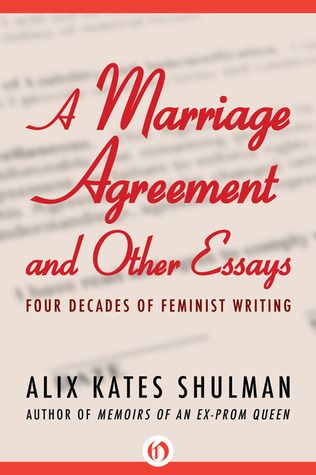
Marriage
Do We Need Marriage Agreements?
Would a formal contract help us divide housework more fairly?
Posted May 15, 2013

I recently had the honor of talking with feminist writer and activist Alix Kates Shulman, who became (in)famous for her 1970 essay “A Marriage Agreement.” The essay laid out all the often-invisible tasks of homemaking and childcare – calling the babysitter, picking up dry cleaning, making breakfast – and divided them up, legal contract-style, between Shulman and her husband. He would do dishes Tuesday, Thursday and Sunday. She would do them the rest of the week. She would drive the kids around in the afternoon; he would help with homework at night. Etc. Etc. Etc.
More than 40 years after the essay was published, housework and childcare arrangements are still a huge source of stress for tons of couples (even though they’re not considered solely women’s work in the same way they were in the 1960s). Yet Shulman’s essay is still being mocked as uptight and humorless and absurd (“Certainly Shulman has earned herself a spot on almost any short list of very silly people,” snarks Caitlin Flanagan in The Atlantic).
So I wonder: is a marriage agreement a good idea? I have so many friends who say things like “well, I clean more, because he doesn’t mind the dirt but I do” or “I cook all the dinners because she can’t even boil spaghetti.” These complaints are usually delivered with good humor, but I wonder if a marriage (or partnership) arrangement would defuse burgeoning tensions, or would it just make the relationship seem unappealingly businesslike? (As for myself, I have almost no housework disagreements, but my husband and I have almost no housework, thanks to a teeny-tiny one bathroom house that can be vacuumed in 10 minutes. Yay for tiny houses! Plus, we both like to cook, and we both often work from home. But I know it’s harder for people with kids and long hours and bigger houses).
Shulman, for her part, thinks we need bigger, society-wide changes to reach real equality:
Probably not until the polity is more child- and woman-friendly, not until men and women are equally valued – economically and otherwise – not until free or low-cost quality childcare is universally available, will the ideal of equality in marriage be other than radical.
Thoughts? Would a formal marriage contract laying out responsibilities be a good idea, or a terrible one?

